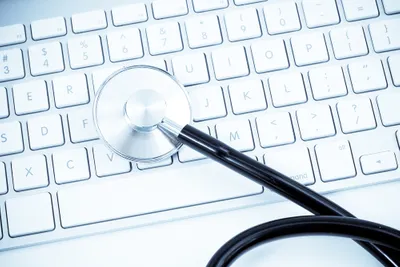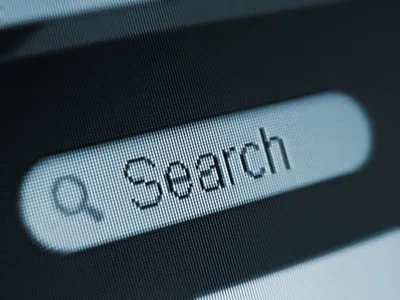Aside from the threat of Ebola, Enterovirus D68 sweeping through schools, swine flu proliferating livestock, and a surge of this winter’s unique influenza strain—another condition is sweeping the (first) world’s population at large: cyberchondria. According to mental health experts at Baylor University, cyberchondria characterizes folks who rely solely on the Internet for self-diagnosis and rather than finding relief, convince themselves they’ve been stricken with a horrific disease.
Sure, we’ve all utilized the web to shed some light on a strange rash or collection of confounding symptoms. However, medical web research for cyberchondriacs fuels the fear and anxiety to unfounded heights and they often accept it as blanket truth without seeing professional help.
If you experience the following symptoms after researching medial information online, put down that tablet and book an appointment with a medically trained doctor immediately. Here are nine signs that you may be a cyberchondriac…
1. Cyberchondriacs vs. Everyone Else
During a 2009 research study, Microsoft scrutinized health-related web searches and discovered that roughly 40 percent of non-medically-trained individuals who use the web to help self-diagnose a medical problem, emerge worse off instead of relieved, to the point of extreme fear and paranoia.
2. Searching Increases Worry
As mentioned, cyberchondriacs are fuelled not reassured by the health information they read online. For instance, as a cyberchondriac reads up on one or a few vague symptoms, their anxiety level, heart rate, and breathing gradually increase creating a whole new group of symptoms that are only amplified further by the obsessive searching and mounting anxiety.
3. Obsessive Searching
Most of us realize when we’re upset by something we read online and the effect it has over us. However, for the cyberchondriac, the more they search; the worse they feel and the more worried they become; the more they search. Whereas the average person would go offline when they realize the search is a source of anxiety—cyberchondriacs will continue searching vigilantly until their worst fears are corroborated.
4. You Search in Vague Terms
Understand that search engines love niche keywords, meaning that the more precise your actual search terms—the more relevant your results will be when served back to you online. Cyberchondriacs tend to type in vague symptoms as keywords (i.e., headache, fever, dizziness, fatigue, heart palpitations, chest pain, stomach pain, and rash), which understandably can be symptomatic of numerous illnesses both mild and severe.
5. Searching Causes Sickness
When I read about scrumptious recipes, I usually get hungry. Well, the same goes for feel ill when reading about being sick for cyberchondriacs so much so that harmless symptoms (i.e., stomach cramps and nausea) are misconstrued as fatal conditions (i.e., intestinal cancer).
6. Make the Jump to Conclusions
If you type any mild symptom (i.e., nausea) into a search engine chances are it will be associated with harmless (i.e., acid indigestion) as well as catastrophic conditions (i.e., Ebola). Even though the chances of Americans contracting Ebola are relatively low (according to leading health organizations like the Centers for Disease Control) unless you’ve recently visited an “at risk” country or been in direct contact with an infected person, cyberchondriacs will always jump to the worst conclusions when it comes to their personal health.
7. You’re Fueled by Medical Trends
Much of the North America media covering on Ebola is fear mongering, just like it was with the SARS outbreak and the West Nile Virus in years previous. However, when a cyberchondriac’s Facebook feed and Twitter account are overwhelmed by Ebola updates and new stories, they automatically fear contagion.
8. Search Interferes with Healthy Living
Perhaps the most symptomatic sign of cyberchondria is the amount of time spent online searching illnesses. The obsession will gradually start to take over your attention until it inevitably takes over other online activities, and eventually, your offline life as well—replacing work, family, friends, and hobbies
9. You Take Internet for Truth
The Internet connects people and information around the world in amazing ways, but in no way should it ever replace the sound advice of professional doctor (and that’s including the information you read on this website). The trouble is that if a cyberchondriac doesn’t get a suitable diagnosis from a doctor—they will often turn to online sources (i.e., Wikipedia) and take that information for absolute truth, which can be very dangerous is they self-diagnose and self-medicate.












